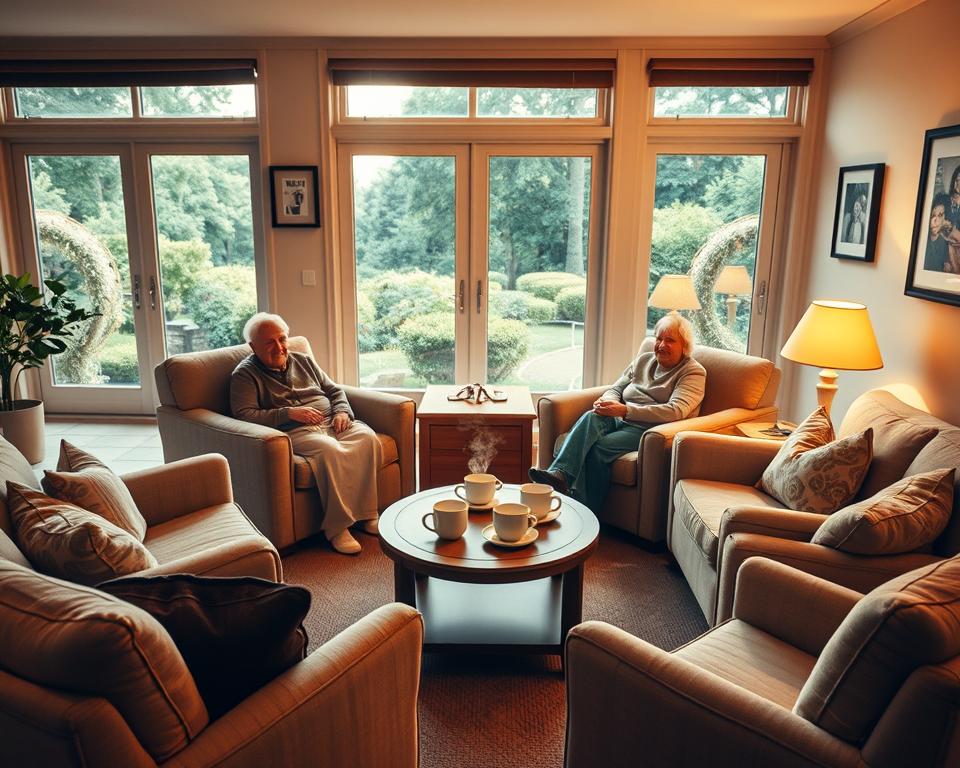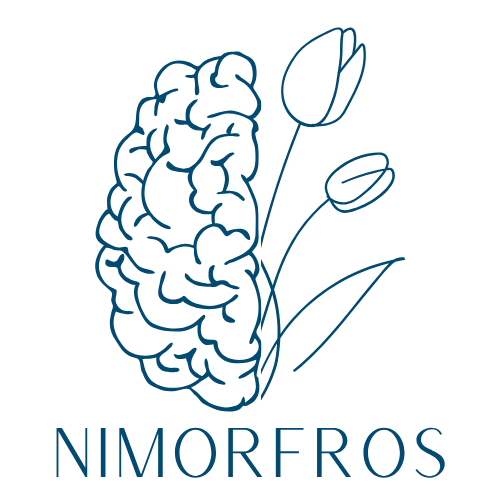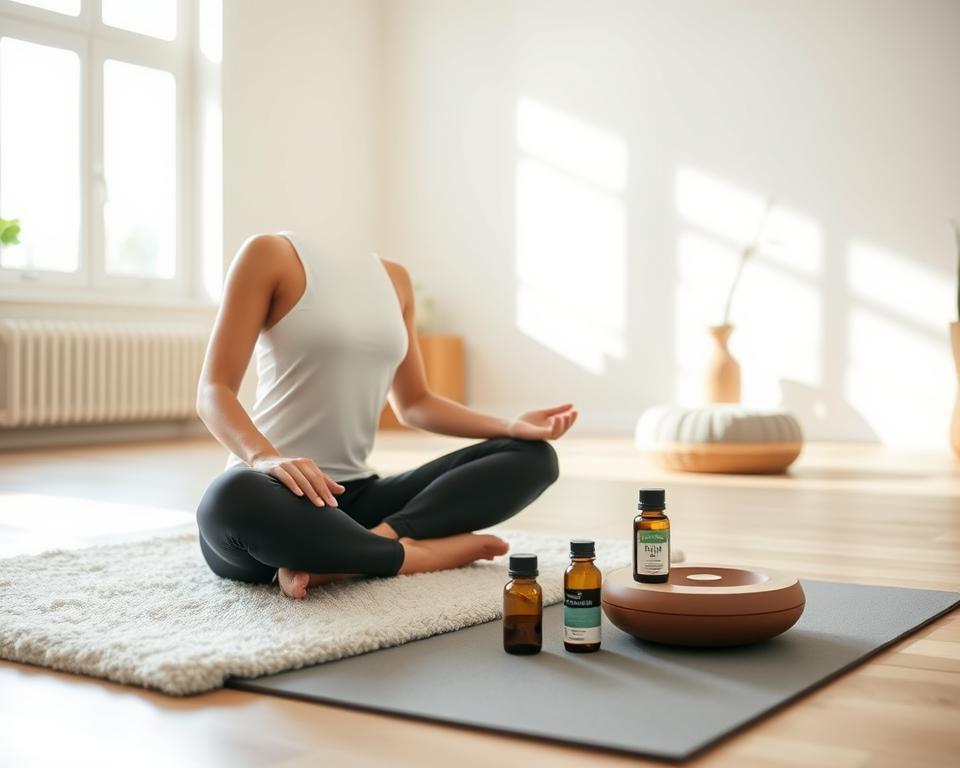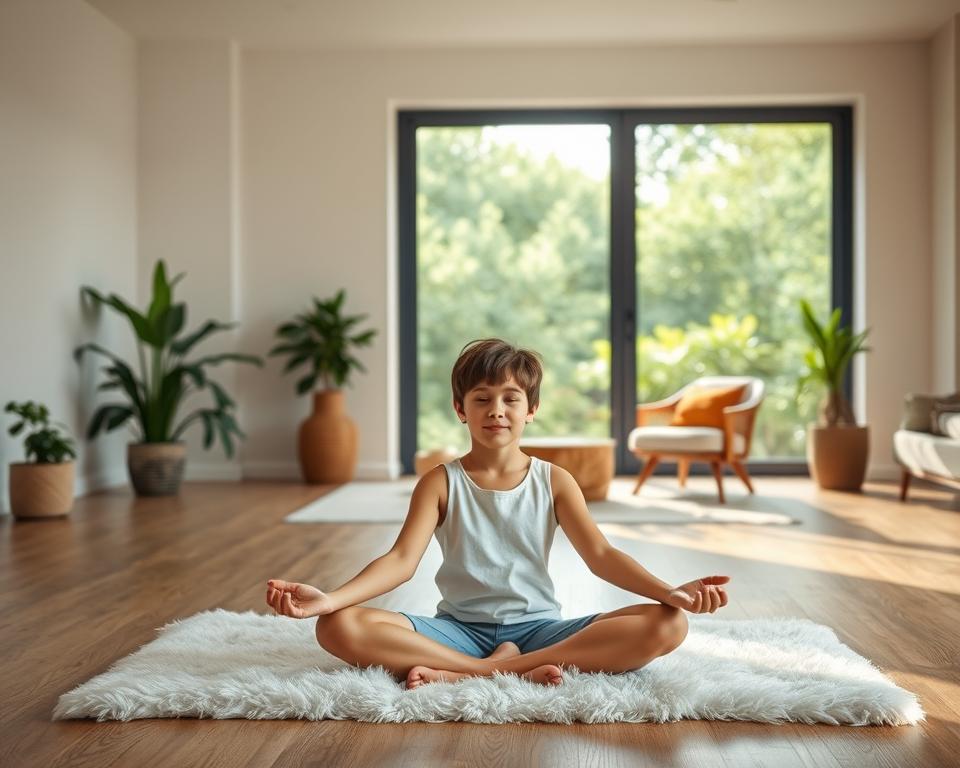Anúncios
wellness means caring for your body, mind, and daily life in simple, realistic ways. Can small habits really change your energy and mood? That question drives this practical, evidence-informed guide.
You will read why this topic matters in 2025. Recent research shows that linked dimensions—physical, social, emotional, and more—shape your daily balance. Small moves, like a 10-minute walk, can lift mood and boost focus.
This guide sets clear expectations. It offers tips grounded in current evidence and real life. You will get resources and simple routines that fit into busy weeks, not compete with them.
Use this as education, not medical advice. Talk with a clinician, coach, or counselor for diagnosis or personalized plans. The goal is steady progress over quick fixes, with steps you can keep over time.
Introduction: your 2025 guide on how to Wellness with balance and intention
Today’s pace calls for simple steps that fit your schedule and values. This guide centers practical moves you can try in short pockets of time. It draws on current research and real-life examples without promising cures.
Anúncios
Context and relevance in the present
Wellness is self-defined and dynamic. It is more than the absence of illness or stress.
The different dimensions of life—social, physical, financial, and environmental—interact. You don’t need perfect balance. Find the way that fits your culture and schedule.
Evidence-informed, not one-size-fits-all
This guide translates evidence into small, repeatable moves. Examples include short bouts of movement, active listening, simple savings, and device-free outdoor time.
Anúncios
How this guide helps you take action
You’ll get clear tips, checklists, and campus or local resources aimed at students, parents, and busy professionals. The goal is steady progress, not overhaul.
Use this as education, not medical advice: consult a licensed professional for personalized health plans.
How to Wellness: a practical, evidence-informed framework
Begin by naming one small action in each life area and schedule it this week. This makes change feel clear and achievable.
Start with the dimensions
Map your starting point across core dimensions: physical, social, emotional, intellectual, occupational, financial, environmental, and spiritual.
Jot one activity that already works and one you want to try. This builds on your current ability and momentum.
Plan your week
Block real time for tiny actions. Aim for short movement bouts that add up toward 150 minutes per week, like 10–15 minute walks after lunch.
Use support systems and community resources
Tap quick resources: a library class, a neighborhood walking group, or a free budgeting workshop. These add structure and others can keep you accountable.
Set realistic goals and track what feels better
- Choose one activity per dimension and test it for two weeks.
- Use a checklist, calendar reminders, or a notes app to log progress.
- Measure by what feels better—energy, focus, or connection—rather than perfection.
Keep your plan flexible. Swap in a shorter option on busy days so consistency beats intensity and you discover a sustainable way forward.
Social and emotional wellness: relationships, communication, and stress skills
Everyday conversations can build trust and make conflict easier to solve. Social wellness links your daily contacts with emotional balance. Small practices help you stay connected and calm under pressure.

Active listening to strengthen trust and understanding
Active listening means pausing, reflecting back what you heard, and asking one clear question. This shows respect and deepens bonds without rushing for solutions.
Boundaries encourage communication and conflict management
Use clear, kind limits about response time and topics. Simple rules make disagreement less personal and support trust conflict management in daily talks.
Keep in touch with friends, family, and mentors
Block a short weekly slot for check-ins. A text, a quick call, or a shared win keeps relationships steady and makes reaching out feel natural.
Practice gratitude and self-reflection
Note three small positives each day. This reduces perceived stress and trains your attention toward support from others.
When to seek help and how to normalize support
Talk about counseling, peer groups, or campus resources as practical tools. If things feel overwhelming, ask a trusted person for a referral. Be gentle with yourself; wellness allows space for rest, learning, and repair.
Physical and intellectual wellness: move your body, train your mind
Pair brief movement with curious learning and you create steady benefits for energy and focus. Aim for about 150 minutes each week, split into short bouts that fit your day. This approach follows current research guidance without promising fixed results.
Build activity into your day
Start with 10–15 minute sessions like brisk walking, stair climbs, or a bodyweight circuit. These add up and reduce barriers when time feels tight.
Support recovery with steady sleep (7–9 hours) and hydration so your health stays sustainable.
Mix it up: routines you can actually enjoy
Rotate cycling, yoga, swimming, and strength work to avoid boredom and engage different muscles. Set simple goals—walk three weekdays or do two short strength sessions—and adjust based on what helps you stick with it.
Lifelong learning: curiosity, classes, and hobbies
Feed your intellectual wellness with a short reading habit, a community class, or a hobby that challenges memory and problem-solving.
- Practice active listening and note-taking in a class or webinar.
- Keep a light log: date, activity, minutes, and how you felt.
- Ask an instructor or librarian for research starters on topics you care about.
Consult a health or fitness professional if you have medical concerns before changing routines. The goal is steady progress and realistic goals that match your wellness ability and daily life.
Occupational, financial, environmental, and spiritual wellness: align values with daily choices
Aligning your daily choices with clear values makes work, money, place, and purpose feel less scattered.
Occupational focus
Clarify career goals by listing what energizes you, then book a 30-minute career services session. Role-play communication for interviews or check-ins and log one weekly win.
Practice open, respectful communication and use a simple framework for trust conflict with teammates early.
Smart money moves
Build financial wellness with a one-page budget and a weekly spending review. Start an automatic savings transfer—even $10 helps—so progress happens without effort.
Before an unplanned purchase, pause and ask, “Do I really need this?” Consider used items or borrowing from your community.
Environment and place
Add low-waste activities: carry a reusable bottle, unplug idle devices, and consolidate errands by walking or biking. Plan one outdoor pause each day for fresh air and focus.
Meaning and quiet
Try device-free moments: one hour or one meal without screens. Use that space for mindfulness, gratitude, or brief reflection to reconnect with purpose.
- Explore opportunities through volunteering or a short course that matches your interests.
- Use local resources and community programs for low-cost classes and practical resources.
- Revisit goals quarterly; wellness allows flexible paths that fit your season of life.
Conclusion
Tiny, consistent actions across dimensions make your routines more resilient and more human.
Pick one change this week: a short bout of physical activity, a quick check-in with friends or family, and a small low-cost step toward your goals as a student or professional.
Lean on social wellness by practicing active listening, using boundaries encourage to protect focus, and scheduling a brief keep in touch moment. Stack physical wellness into daily life with short walks or five-minute stretches; consistency beats intensity.
Try one class or hobby for intellectual wellness, carry a reusable item for environmental wellness, and invite others in your community so the habit sticks. Use credible holistic wellness guide resources and speak with licensed professionals when you need tailored support.
Notice what feels better, celebrate small wins, and repeat the way that works for your life.



